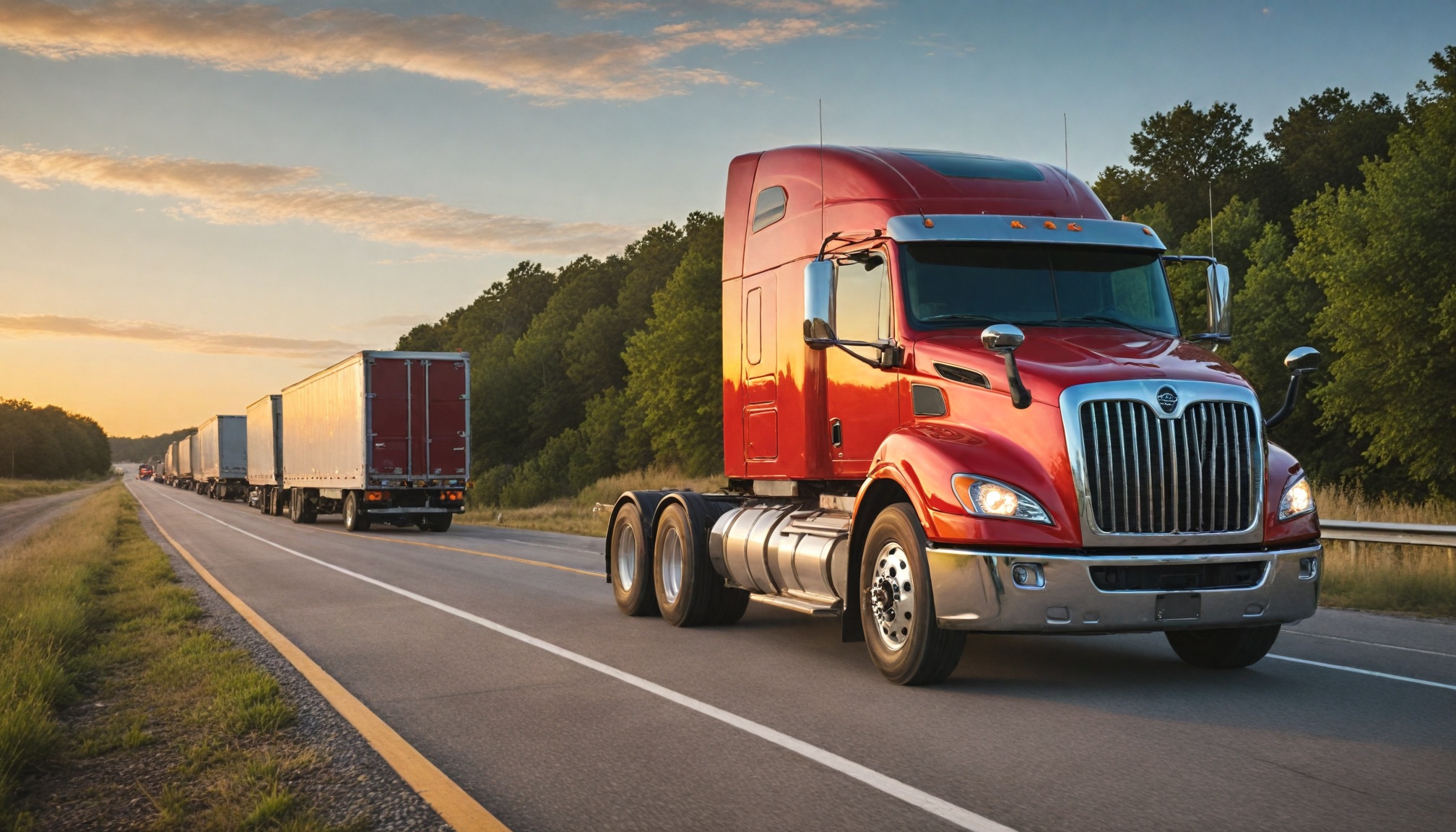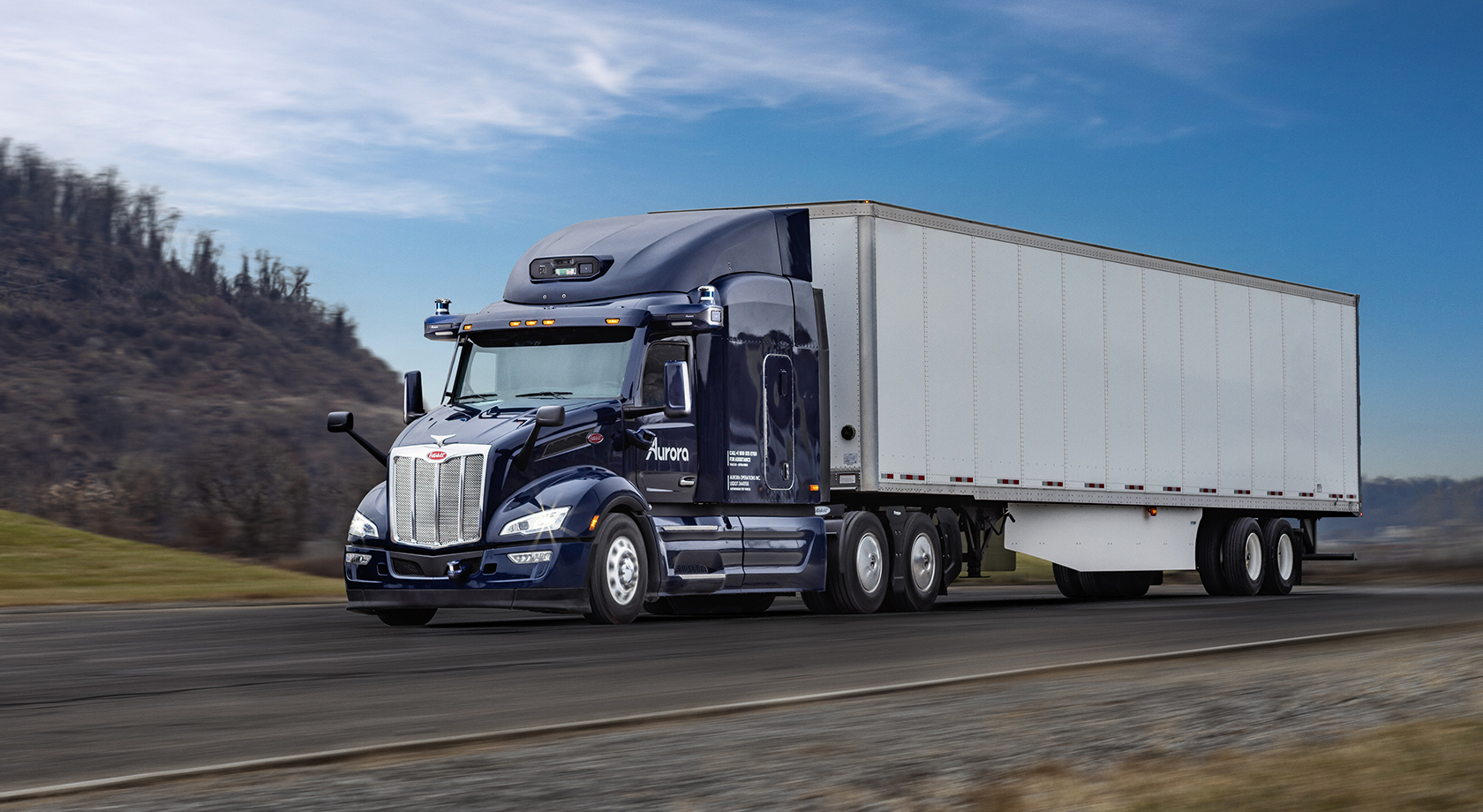
A modernized approach to infrastructure funding: replacing failing fuel taxes with mileage-based fees for heavy trucks to create a more equitable and sustainable highway funding system.

Drivetech Partners
The traditional fuel tax system is failing to meet the funding needs of the USA's highways as vehicle efficiency improves and electric vehicles become more common. A Mileage-Based User Fee (MBUF) system for heavy trucks presents a promising alternative that directly connects road usage with payment responsibility, creating a more sustainable and equitable approach to infrastructure funding.
Key Takeaways
Current highway funding faces critical revenue shortfalls as fuel efficiency improves and electric vehicles increase
Heavy trucks are the logical starting point for MBUF implementation due to existing GPS technology and established pilot programs
MBUF systems would create fair pricing structures based on weight, mileage, emissions, and road types used
Owner-operators would benefit from simplified administrative procedures and standardized interstate regulations
Successful implementation requires addressing privacy and security concerns with industry participation in system design
Why Current Road Funding Models Are Failing the Trucking Industry
The traditional fuel tax system is becoming increasingly obsolete for funding our nation's highways. As vehicles become more fuel-efficient, the revenue generated from fuel taxes continues to decline despite increasing traffic and infrastructure needs. This disparity creates a growing funding gap for critical road maintenance and development.
For the trucking industry, these shortcomings are particularly problematic. The current system creates market-distorting subsidies where more fuel-efficient trucks effectively subsidize gas-guzzlers through disproportionate tax contributions. Additionally, the complex patchwork of state regulations and fees places a substantial administrative burden on owner-operators who must navigate different requirements across state lines.

The Highway Trust Fund faces ongoing revenue shortfalls that threaten our ability to maintain existing infrastructure. Without reform, this funding crisis will only worsen as electric vehicles and other alternative fuel technologies continue to gain market share, further eroding the gas tax revenue base.
Heavy Trucks: The Logical Starting Point for MBUF Implementation
Commercial trucks represent the ideal initial implementation segment for an MBUF system for several compelling reasons. Most importantly, the majority of these vehicles are already equipped with GPS tracking systems that could be utilized for mileage reporting with minimal additional investment.
The cost of installing specialized onboard units (OBUs) would be relatively minor compared to the overall operational expenses in the trucking industry. This makes the technical barriers to entry significantly lower than for passenger vehicles.
Extensive pilot programs have already demonstrated the technical feasibility of truck-based MBUF systems. The Eastern Transportation Coalition's 2022 International Truck Pilot involved 253 trucks traveling more than 8 million miles across four Canadian provinces, Washington D.C., and 49 U.S. states. A previous pilot from October 2018 through March 2019 included over 50 tractor-trailers covering 1.4 million miles across 27 states.
Creating a successful MBUF framework for trucks would establish a proven model that could later be extended to passenger vehicles, allowing for a smoother transition across the entire transportation sector.
Technical Framework: How a Truck MBUF System Would Work

The technical implementation of a truck MBUF system would rely on onboard units (OBUs) that track location, time of day, and roadway segment information. These devices would be required for trucks over a certain size classification and would communicate with a central system for fee calculation and collection.
Weight-per-axle sensors would provide accurate assessment data for fee calculations, ensuring that payments correspond precisely to the actual road impact. The GPS-based technology would enable variable pricing structures based on multiple factors, creating a more nuanced and fair approach than the current fuel tax system.
The technical architecture would include:
Secure data transmission protocols between vehicles and processing centers
Clearinghouse frameworks adapted from existing payment systems
Integration with both state and federal tax collection mechanisms
User-friendly interfaces for operators to verify mileage and charges
This system could efficiently collect and remit both state and federal taxes, simplifying compliance for operators while ensuring proper funding distribution to different jurisdictions.
Creating Fair Rate Structures That Make Sense for Owner-Operators
An effective MBUF system would calculate fees using a multi-factor approach that considers truck axle weight, emissions per mile, road types used, and total miles driven. This comprehensive assessment would create a more equitable distribution of costs aligned with actual road impact and usage.
Variable rates would apply based on vehicle characteristics and operational choices:
Higher rates for heavier trucks that cause more road wear
Premium charges for higher-emission vehicles
Increased fees for travel on roads not designed for heavy trucks
Time-of-day pricing to discourage travel during congested periods
A uniform national MBUF system would reduce administrative costs for both carriers and government agencies compared to the current patchwork approach. However, the system must be tailored to recognize the vast differences in vehicle operations, types, ages, performance, and mileage traveled rather than applying a one-size-fits-all approach.
This nuanced approach ensures that fees accurately reflect the true cost impact of different vehicles on our road infrastructure, creating a more sustainable and equitable funding mechanism.
Addressing Industry Concerns: Privacy, Security and Implementation
The trucking industry has expressed serious concerns about MBUF proposals, particularly regarding fairness, privacy, security, and regulatory hurdles. Any successful implementation must directly address these issues with industry stakeholders as active participants in system design.
A critical understanding that trucks "can't simply be treated as big cars" must guide the development process. The specific operational requirements, business models, and regulatory framework of the trucking industry necessitate a customized approach rather than simply adapting passenger vehicle systems.
Data protection measures are essential in GPS-based tracking systems. Implementation must include:
Clear limits on data collection and retention periods
Robust encryption and security protocols
Transparent policies on data access and usage
Audit mechanisms to prevent misuse
The clearinghouse framework requires well-defined roles and responsibilities to ensure smooth operation while protecting sensitive carrier information. Building trust through collaborative system design will be crucial for industry acceptance and successful implementation.
Administrative Benefits for Owner-Operators Under MBUF
A properly designed MBUF system offers significant administrative advantages for owner-operators compared to the current regulatory environment. The simplification of recordkeeping procedures would reduce the paperwork burden and compliance costs that currently strain small operators.
The reduction in cross-state regulatory complexity represents a major benefit. A national system would replace the current confusing patchwork of state regulations and fees with a standardized approach, making interstate operations more straightforward and predictable.
The per-mile charge model based on vehicle registered-weight category would be familiar to operators who already use Interstate toll systems, minimizing the learning curve for adoption. This approach ensures everyone "pays their fair share for highway use and understands how those rates were set," creating transparency that's lacking in the current system.
For owner-operators, these streamlined procedures would allow more focus on core business operations rather than administrative compliance, potentially improving both profitability and operational efficiency.
The Path Forward: Transition Planning and Long-Term Sustainability
Implementing a nationwide MBUF system will require a carefully planned transition that minimizes disruption while ensuring funding continuity. A phased implementation approach starting with specific vehicle classes represents the most practical path forward.
The Infrastructure Investment and Jobs Act has already mandated a nationwide pilot project, creating momentum for potential policy changes. A growing segment of the trucking industry is actively working to develop fair and consistent MBUF policies that serve both industry and infrastructure funding needs.
While technical transition issues appear manageable given existing technologies, the institutional challenges require more attention. Establishing governance structures, interstate agreements, and administrative processes will be crucial for successful implementation.
The long-term financial sustainability of an MBUF system offers compelling advantages:
Revenue would not erode as vehicle fuel efficiency increases
The system would capture contributions from non-fossil fuel vehicles
A national weight-distance road tax would ensure heavy trucks pay appropriate costs for road damage
Properly structured fees could match or exceed current fuel tax revenue
By directly tying road funding to actual usage rather than fuel consumption, an MBUF system creates a more sustainable financial foundation for maintaining and improving our vital highway infrastructure for decades to come.
Sources: itif.org - Why Congress Should Enact Mileage-Based User Fee for Heavy Trucking, asce.org - Mileage-based user fees show promise for trucks, report says, reason.org - How to Jump-Start U.S. Mileage-Based User Fees





